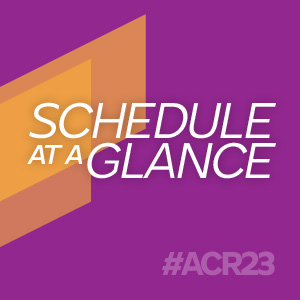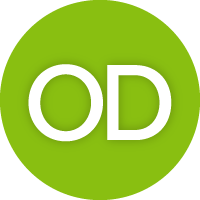Poster Session A
Rheumatoid arthritis (RA)
Session: (0423–0459) RA – Treatment Poster I
0424: Real-World Effectiveness of Upadacitinib in Patients with Moderate/Severe Rheumatoid Arthritis: 6-Month Data from the Observational UPHOLD Study
Sunday, November 12, 2023
9:00 AM - 11:00 AM PT
Location: Poster Hall
- IL
Abstract Poster Presenter(s)
Andrew Östör1, Eugen Feist2, Prodromos Sidiropoulos3, Jérôme Avouac4, Martin Rebella5, Rajaie Namas6, Bruno Frediani7, Song-Chou Hsieh8, Tianming Gao9, Nasser Khan10, Sander Strengholt11, Ivan Lagunes-Galindo10 and Susan Attar12, 1Monash University & Emeritus Research; Australian National University, Melbourne, Australia, 2Helios Department of Rheumatology and Clinical Immunology, Vogelsang-Gommern, Germany, 3Faculty of Medicine, University of Crete, Heraklion, Greece, 4Service de Rhumatologie, Hôpital Cochin, AP-HP.Centre – Université Paris Cité, Paris, France, 5Departamento de Medicina, Facultad de Medicina, Universidad de la República; Unidad de Enfermedades Autoinmunes Sistémicas, MUCAM, Montevideo, Uruguay, 6Medical Subspecialties Institute, Division of Rheumatology, Cleveland Clinic Abu Dhabi, Abu Dhabi, United Arab Emirates, 7Santa Maria alle Scotte General Hospital, Siena, Italy, 8National Taiwan University Hospital, Taipei, Taiwan, 9AbbVie, Inc., North Chicago, IL, 10Pharmacovigilance and Patient Safety, AbbVie, Inc., North Chicago, IL, 11AbbVie B.V., Mijdrecht, Utrecht, Netherlands, 12King Abdulaziz University, Jeddah, Saudi Arabia
Background/Purpose: The efficacy and safety of upadacitinib (UPA), an oral reversible Janus kinase inhibitor, have been shown in patients (pts) with moderate/severe RA in the SELECT clinical trial program, both as monotherapy and as part of combination therapy1. However, real-world (RW) data on UPA in clinical practice are limited. This analysis presents 6-month data on the effectiveness and safety of UPA in pts with moderate/severe RA in RW clinical practice.
Methods: UPHOLD (NCT04497597) is an ongoing, international, observational cohort study of UPA‑naïve adults (aged ≥18 years) with moderate/severe RA, who received UPA 15 mg once daily (QD) as per the product label, with the decision to initiate UPA made before study enrollment. This 6-month interim analysis includes data reported between the study start date of Oct 16, 2020 and data cutoff of Apr 20, 2023. The co-primary endpoints are: 1) proportion of pts achieving DAS28-CRP remission (< 2.6) at 6 months, and 2) proportion of pts achieving DAS28-CRP remission at 6 months who continue to receive UPA and maintain remission (or have a ≤0.6-point increase in DAS28-CRP) at 12 months; only the first of these is reported here. Secondary and exploratory efficacy endpoints reported include proportion of pts achieving DAS28-CRP low disease activity (LDA; ≤3.2) at 6 months and change from baseline to 6 months in pt-reported outcomes (PROs). Safety (reported as % of pts with adverse events [AEs]) and PROs (as observed [AO] data) were assessed in the full analysis set (FAS; all pts who received ≥1 UPA dose). DAS28-CRP remission and LDA were analyzed using modified non-responder imputation (mNRI; discontinuations before 6 months for any reason were treated as non-responders) in a modified FAS (mFAS; all pts within the FAS who completed 6 months of UPA treatment and had DAS28-CRP data available, and pts who discontinued the study before 6 months for any reason). Remission and LDA at 6 months were also analyzed AO in the mFAS population.
Results: Of the 1732 pts enrolled, 1715 received ≥1 UPA dose (FAS), of whom 223 (13%) prematurely discontinued the study before 6 months. The most common primary reasons for discontinuation were AEs and lack of efficacy (n=72 [4.2%] each). Pt demographics and disease characteristics at UPA initiation are summarized in Table 1. Of the 1104 pts in the mFAS, 44.5% (mNRI) and 55.7% (AO) achieved DAS28-CRP remission at 6 months, and 56.3% (mNRI) and 70.6% (AO) achieved DAS28-CRP LDA at 6 months (Figure). Improvements from baseline to 6 months were observed across PROs (Table 2). AEs reported were: any AE (36.4% of pts), serious AEs (4.5%), serious infection (1.7%; most commonly COVID-19), herpes zoster (2.5%), creatine phosphokinase elevation (0.5%), malignancy excluding non-melanoma skin cancer (NMSC; 0.3%), NMSC (0.4%), venous thromboembolic events (0.4%), and deaths (0.3%). No major adverse cardiovascular events were reported.
Conclusion: The results from UPHOLD suggest that UPA 15 mg QD is effective for the treatment of moderate/severe RAin RW practice, with almost half of pts achieving remission at 6 months. The benefit–risk profile of UPA remains favorable in the RW, consistent with that observed in Phase 3 clinical trials1.
Reference:
1. Conaghan PG, et al. Drug Saf 2021;44:515–30
.jpg)
.jpg)
.jpg)
A. Östör: AbbVie, 12, has served as a consultant and/or on advisory boards and/or undertaken clinical trials, GSK, 12, has served as a consultant and/or on advisory boards and/or undertaken clinical trials, Janssen, 12, has served as a consultant and/or on advisory boards and/or undertaken clinical trials, Lilly, 12, has served as a consultant and/or on advisory boards and/or undertaken clinical trials, Novartis, 12, has served as a consultant and/or on advisory boards and/or undertaken clinical trials, Pfizer, 12, has served as a consultant and/or on advisory boards and/or undertaken clinical trials; E. Feist: AbbVie, 12, has received honoraria and research grants, BMS, 12, has received honoraria and research grants, Galapagos, 12, has received honoraria and research grants, Lilly, 12, has received honoraria and research grants, MSD, 12, has received honoraria and research grants, Novartis, 12, has received honoraria and research grants, Pfizer, 12, has received honoraria and research grants, Roche, 12, has received honoraria and research grants, Sobi, 12, has received honoraria and research grants; P. Sidiropoulos: AbbVie, 5, 6, 12, through the University of Crete Special Account for Research, Janssen, 5, 6, 12, through the University of Crete Special Account for Research, Lilly, 5, 6, 12, through the University of Crete Special Account for Research, MSD, 5, 6, 12, through the University of Crete Special Account for Research, Novartis, 5, 6, 12, through the University of Crete Special Account for Research, Pfizer, 5, 6, 12, through the University of Crete Special Account for Research, Roche, 5, 6, UCB, 5, 6, 12, through the University of Crete Special Account for Research; J. Avouac: AbbVie, 6, AstraZeneca, 6, Biogen, 6, BMS, 5, 6, Fresenius Kabi, 5, 6, Galapagos, 5, 6, Janssen, 6, Lilly, 6, Medac, 6, MSD, 6, Nordic Pharma, 6, Novartis, 6, Novartis (Dreamer), 5, Pfizer, 6, Pfizer (Passerelle), 5, Roche-Chugai, 6, Sandoz, 6, Sanofi, 6; M. Rebella: AbbVie, 12, has received honoraria and/or support to participate in academic events, Bayer, 12, has received honoraria and/or support to participate in academic events, Pfizer, 12, has received honoraria and/or support to participate in academic events, Roche, 12, has received honoraria and/or support to participate in academic events; R. Namas: None; B. Frediani: AbbVie, 12, has received financial support, Abiogen, 12, has received financial support, Amgen, 12, has received financial support, BMS, 12, has received financial support, Boehringer Ingelheim, 12, has received financial support, Chiesi, 12, has received financial support, Galapagos, 12, has received financial support, Lilly Italia, 12, has received financial support, MSD, 12, has received financial support, Novartis, 12, has received financial support, Pfizer, 12, has received financial support, Sandoz, 12, has received financial support; S. Hsieh: None; T. Gao: AbbVie, 3, 11; N. Khan: AbbVie, 3, 11; S. Strengholt: AbbVie/Abbott, 3, 11; I. Lagunes-Galindo: AbbVie, 3, 11; S. Attar: None.
Background/Purpose: The efficacy and safety of upadacitinib (UPA), an oral reversible Janus kinase inhibitor, have been shown in patients (pts) with moderate/severe RA in the SELECT clinical trial program, both as monotherapy and as part of combination therapy1. However, real-world (RW) data on UPA in clinical practice are limited. This analysis presents 6-month data on the effectiveness and safety of UPA in pts with moderate/severe RA in RW clinical practice.
Methods: UPHOLD (NCT04497597) is an ongoing, international, observational cohort study of UPA‑naïve adults (aged ≥18 years) with moderate/severe RA, who received UPA 15 mg once daily (QD) as per the product label, with the decision to initiate UPA made before study enrollment. This 6-month interim analysis includes data reported between the study start date of Oct 16, 2020 and data cutoff of Apr 20, 2023. The co-primary endpoints are: 1) proportion of pts achieving DAS28-CRP remission (< 2.6) at 6 months, and 2) proportion of pts achieving DAS28-CRP remission at 6 months who continue to receive UPA and maintain remission (or have a ≤0.6-point increase in DAS28-CRP) at 12 months; only the first of these is reported here. Secondary and exploratory efficacy endpoints reported include proportion of pts achieving DAS28-CRP low disease activity (LDA; ≤3.2) at 6 months and change from baseline to 6 months in pt-reported outcomes (PROs). Safety (reported as % of pts with adverse events [AEs]) and PROs (as observed [AO] data) were assessed in the full analysis set (FAS; all pts who received ≥1 UPA dose). DAS28-CRP remission and LDA were analyzed using modified non-responder imputation (mNRI; discontinuations before 6 months for any reason were treated as non-responders) in a modified FAS (mFAS; all pts within the FAS who completed 6 months of UPA treatment and had DAS28-CRP data available, and pts who discontinued the study before 6 months for any reason). Remission and LDA at 6 months were also analyzed AO in the mFAS population.
Results: Of the 1732 pts enrolled, 1715 received ≥1 UPA dose (FAS), of whom 223 (13%) prematurely discontinued the study before 6 months. The most common primary reasons for discontinuation were AEs and lack of efficacy (n=72 [4.2%] each). Pt demographics and disease characteristics at UPA initiation are summarized in Table 1. Of the 1104 pts in the mFAS, 44.5% (mNRI) and 55.7% (AO) achieved DAS28-CRP remission at 6 months, and 56.3% (mNRI) and 70.6% (AO) achieved DAS28-CRP LDA at 6 months (Figure). Improvements from baseline to 6 months were observed across PROs (Table 2). AEs reported were: any AE (36.4% of pts), serious AEs (4.5%), serious infection (1.7%; most commonly COVID-19), herpes zoster (2.5%), creatine phosphokinase elevation (0.5%), malignancy excluding non-melanoma skin cancer (NMSC; 0.3%), NMSC (0.4%), venous thromboembolic events (0.4%), and deaths (0.3%). No major adverse cardiovascular events were reported.
Conclusion: The results from UPHOLD suggest that UPA 15 mg QD is effective for the treatment of moderate/severe RAin RW practice, with almost half of pts achieving remission at 6 months. The benefit–risk profile of UPA remains favorable in the RW, consistent with that observed in Phase 3 clinical trials1.
Reference:
1. Conaghan PG, et al. Drug Saf 2021;44:515–30
.jpg)
.jpg)
.jpg)
A. Östör: AbbVie, 12, has served as a consultant and/or on advisory boards and/or undertaken clinical trials, GSK, 12, has served as a consultant and/or on advisory boards and/or undertaken clinical trials, Janssen, 12, has served as a consultant and/or on advisory boards and/or undertaken clinical trials, Lilly, 12, has served as a consultant and/or on advisory boards and/or undertaken clinical trials, Novartis, 12, has served as a consultant and/or on advisory boards and/or undertaken clinical trials, Pfizer, 12, has served as a consultant and/or on advisory boards and/or undertaken clinical trials; E. Feist: AbbVie, 12, has received honoraria and research grants, BMS, 12, has received honoraria and research grants, Galapagos, 12, has received honoraria and research grants, Lilly, 12, has received honoraria and research grants, MSD, 12, has received honoraria and research grants, Novartis, 12, has received honoraria and research grants, Pfizer, 12, has received honoraria and research grants, Roche, 12, has received honoraria and research grants, Sobi, 12, has received honoraria and research grants; P. Sidiropoulos: AbbVie, 5, 6, 12, through the University of Crete Special Account for Research, Janssen, 5, 6, 12, through the University of Crete Special Account for Research, Lilly, 5, 6, 12, through the University of Crete Special Account for Research, MSD, 5, 6, 12, through the University of Crete Special Account for Research, Novartis, 5, 6, 12, through the University of Crete Special Account for Research, Pfizer, 5, 6, 12, through the University of Crete Special Account for Research, Roche, 5, 6, UCB, 5, 6, 12, through the University of Crete Special Account for Research; J. Avouac: AbbVie, 6, AstraZeneca, 6, Biogen, 6, BMS, 5, 6, Fresenius Kabi, 5, 6, Galapagos, 5, 6, Janssen, 6, Lilly, 6, Medac, 6, MSD, 6, Nordic Pharma, 6, Novartis, 6, Novartis (Dreamer), 5, Pfizer, 6, Pfizer (Passerelle), 5, Roche-Chugai, 6, Sandoz, 6, Sanofi, 6; M. Rebella: AbbVie, 12, has received honoraria and/or support to participate in academic events, Bayer, 12, has received honoraria and/or support to participate in academic events, Pfizer, 12, has received honoraria and/or support to participate in academic events, Roche, 12, has received honoraria and/or support to participate in academic events; R. Namas: None; B. Frediani: AbbVie, 12, has received financial support, Abiogen, 12, has received financial support, Amgen, 12, has received financial support, BMS, 12, has received financial support, Boehringer Ingelheim, 12, has received financial support, Chiesi, 12, has received financial support, Galapagos, 12, has received financial support, Lilly Italia, 12, has received financial support, MSD, 12, has received financial support, Novartis, 12, has received financial support, Pfizer, 12, has received financial support, Sandoz, 12, has received financial support; S. Hsieh: None; T. Gao: AbbVie, 3, 11; N. Khan: AbbVie, 3, 11; S. Strengholt: AbbVie/Abbott, 3, 11; I. Lagunes-Galindo: AbbVie, 3, 11; S. Attar: None.



